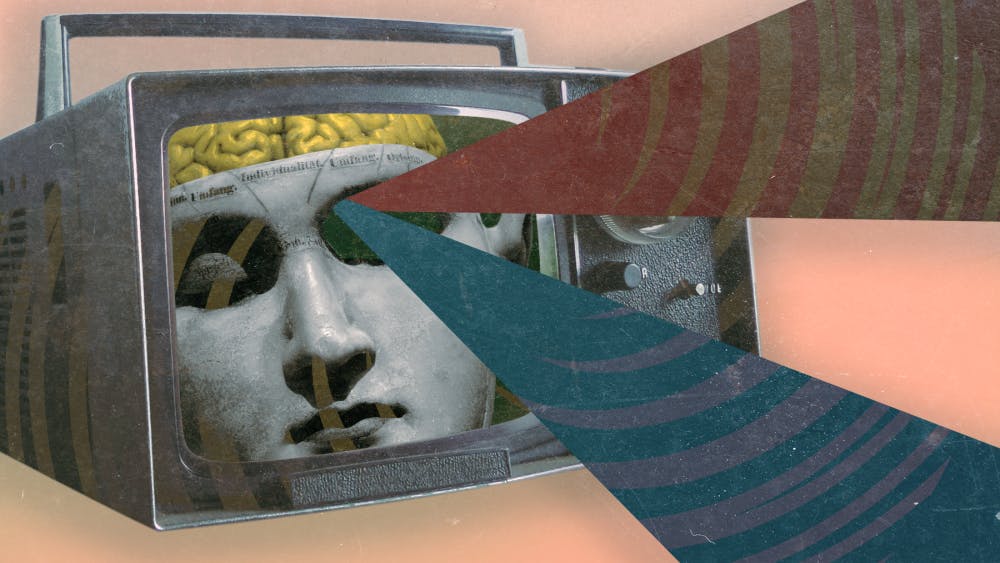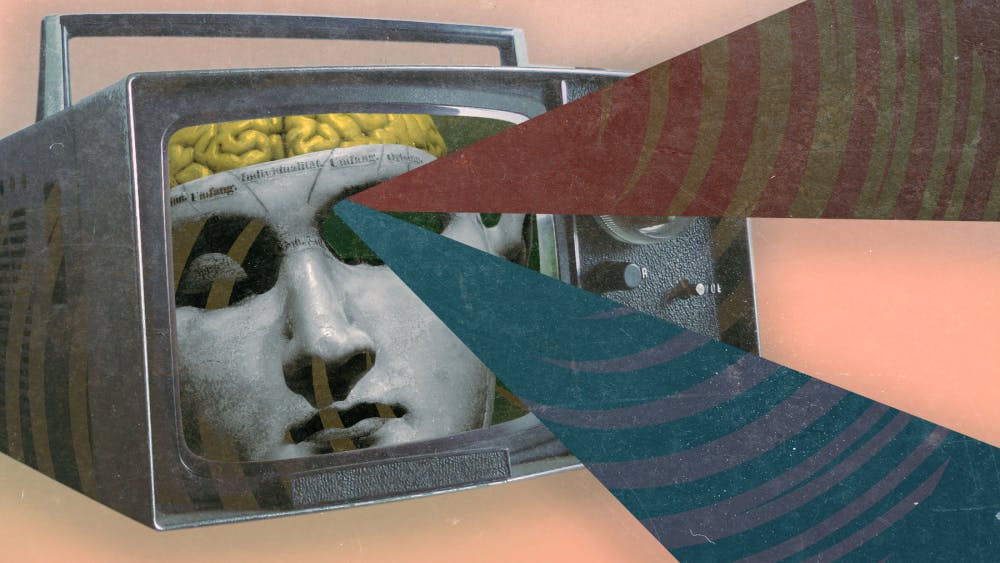
Courtesy of Oscilloscope Laboratories
Elvis Presley’s name is associated with many things, chief among them rock ‘n’ roll royalty and rags-to-riches folklore. The man is undoubtedly American — he’s a symbol of how our nation sees itself in fiction. But America’s truth holds darker secrets, among them decay and corruption under the exploitative weight of unbridled capitalism. Director Eugene Jarecki travels down this rabbit hole of American excess in “The King,” a new documentary exploring Presley’s rise and fall as a tragic metaphor for the country he grew to represent.
In the film’s framing device, Jarecki travels the country in Presley’s 1963 Rolls Royce, picking up a number of famous artists, local musicians and Presley’s friends and collaborators. Using a complex rig made of several cameras, Jarecki captures every inch of the vehicle's interior as his guests tell Presley’s life story in their own words. Starting the film’s journey in Presley’s hometown of Tupelo, Miss., Jarecki discovers the man’s humble origins as the only child of working-class parents. Presley got his professional start in Memphis, Tenn., and moved on to New York City and Los Angeles in his rise to prominence as America’s most popular performer in music and cinema. After a significant falling out with Hollywood, Presley settled in Las Vegas, where he lived out his final drug-addled days. Along the way from Tupelo to Vegas, Jarecki takes pit stops, including more interviews and archival footage. He also includes side coverage of the 2016 presidential election, which was taking place as the film was shot.
As a concept, Presley as a metaphor for America is brilliant, even if it isn’t exactly original — it certainly isn’t much of a stretch. Jarecki makes a compelling case for his argument with “The King,” but the film lacks structure. The road trip in the Rolls Royce is a solid backbone, but there’s so much material presented that none of it really coheres. Jarecki can’t seem to decide on his direction beyond this cross-country ride, editing together a mass of audiovisual materials to see what sticks. Additional interviews and archival footage add context, but they often feel like too much content, too much verbal fluff, for what is a remarkably straightforward metaphor. At its heart, “The King” is an essay film, one with a strong thesis but an incoherent body, zig-zagging across narrative highways to an undeniably powerful and thought-provoking conclusion.
In a way, “The King”’s lack of structure reflects the messiness of America itself. Some see America as a land of endless contradictions that are borderline impossible to reconcile. But leaning into that attitude is disadvantageous to Jarecki’s argument because Presley is presented as a clear-cut example of America’s folly. Throughout the film, Jarecki inserts scenes where he discusses his inability to see where the film is going, even though it’s obvious to the viewer. It feels performative in a way that doesn’t always make sense.
As a portrait of popular culture, however, this performativity adds a truthful dimension to the film’s broader message about America. Presley isn’t the laser-focused subject of “The King,” but a small piece of a massive puzzle, albeit with a few broken edges. As a performer, Presley worked onstage and onscreen, a prime example of the “good-ole-boy” archetype shipped out of America via cultural imperialism. He was a toy of the international market of entertainment, a market that America had cornered in the 20th century. America’s film and music industries defined the culture at home and were tastemakers abroad — and Presley exemplified this. He was not a man. He was a commodity, and Jarecki understands this.
Presley’s relationship with race reveals much of this critique, which Jarecki revisits throughout the film. His list of white interviewees is long, running the gamut from actor Ethan Hawke to musician Emmylou Harris to political strategist James Carville, but his black interviewees — most prominently CNN’s Van Jones and Public Enemy’s Chuck D — contain the most valuable insights into Presley’s relationship to pop culture and the broader state of the union. Thankfully, they’re both given a lot of screen time to discuss Presley’s cultural appropriation of black music, as well as the troublesome truth that a pretty white boy was the only way to sell it to midcentury America. It’s an illuminating example of the ways that the rich tradition of black art, art born out of oppression and resilience, was exploited by the largely white entertainment business.
As a story about Presley, or even an essay, “The King” is an admirable attempt that loses itself in its possibilities. But as a piece of Americana, a slice of apple pie laced with a righteous poison, it feels like a missing link. The connections to be made could fill many more films. Jarecki struggles and fails to cover them all thoroughly, chief among them, the 2016 election. When actor Alec Baldwin is interviewed, he boldly states that “there’s no way Trump wins.” He couldn’t be more wrong in hindsight, but that’s the essence of Jarecki’s film. America’s height is in the rearview, its decline more obvious than ever and yet there’s still so much more to learn.
Grade: B-





